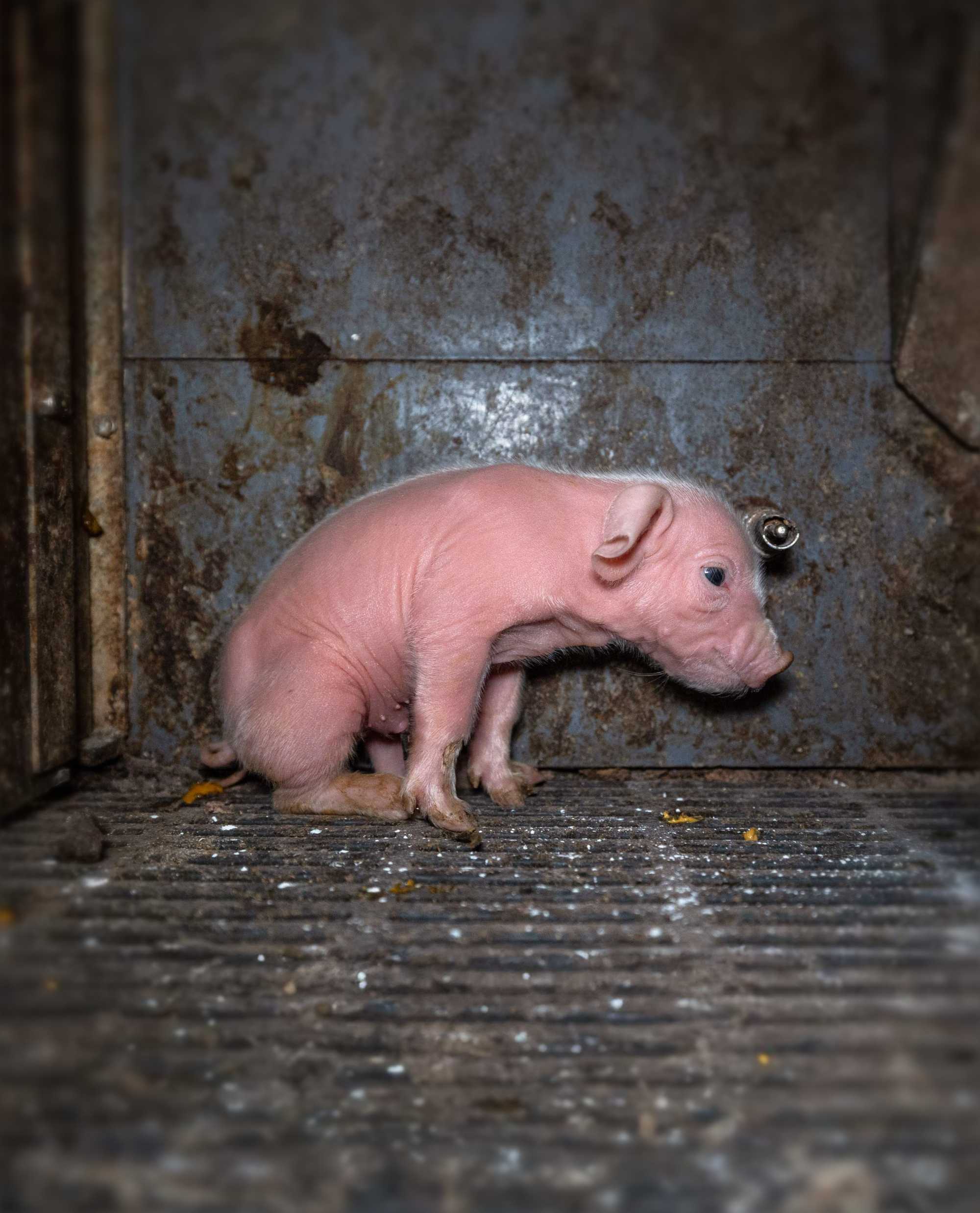End Piglet Thumping

BIG PORK IS BLUDGEONING PIGLETS TO DEATH
Slamming piglets into a concrete floor sounds too horrific to be true, let alone legal. And yet, “piglet thumping” happens regularly on factory farms.
The pork industry comes up with plenty of creative ways to save money. One of them? Killing baby pigs by smashing them into concrete.
(Editor’s Note: The descriptions in the following paragraph may be upsetting to readers.)
It’s called “piglet thumping,” and the photos are too graphic to include here. But, according to an industry group, the process involves “grasping the hind legs of the piglet and striking the top of the cranium firmly and deliberately against a flat, hard surface.” In other words, one moment a piglet is living and breathing. The next, she’s lying bloodied on a concrete floor, her
Why? Because it’s a cost-efficient way to kill animals who are deemed “non-viable”—industry-speak for piglets who are sick, weak, or injured.
Scientists, activists, and industry groups have raised numerous concerns about the practice of piglet thumping. The Humane Slaughter Association warns about the “great risk of human error and inconsistency,” advising that it only be used in an emergency where no other method is available.
And yet, piglet thumping is the most common method of killing non-viable baby pigs in the nation.
That’s right. Not only is piglet thumping legal in the US—it’s a widespread industry practice. It’s no wonder countless slaughterhouse workers are diagnosed with post-traumatic stress disorder.
Anyone who’s spent time with pigs knows just how intelligent, friendly, and special they are. Their natural curiosity, unique personalities, and zest for life have inspired heartwarming stories and heroic main characters, from Charlotte’s Web to Babe.
Smashing a cat or dog into concrete would be a criminal offense. So why should it be different for any other animal? Subjecting piglets to such a violent end shouldn’t be acceptable, let alone standard.
If you’re shocked and horrified by this practice, join thousands of people in refusing to accept a food system that allows this kind of brutality. Will you pledge to protect pigs and other vulnerable animals on factory farms?
ADD YOUR NAME
I don't believe babies should be bludgeoned to death simply because it's "economical." I stand with thousands of caring people who oppose factory farming and support The Humane League's efforts to hold corporations accountable for cruelty.

